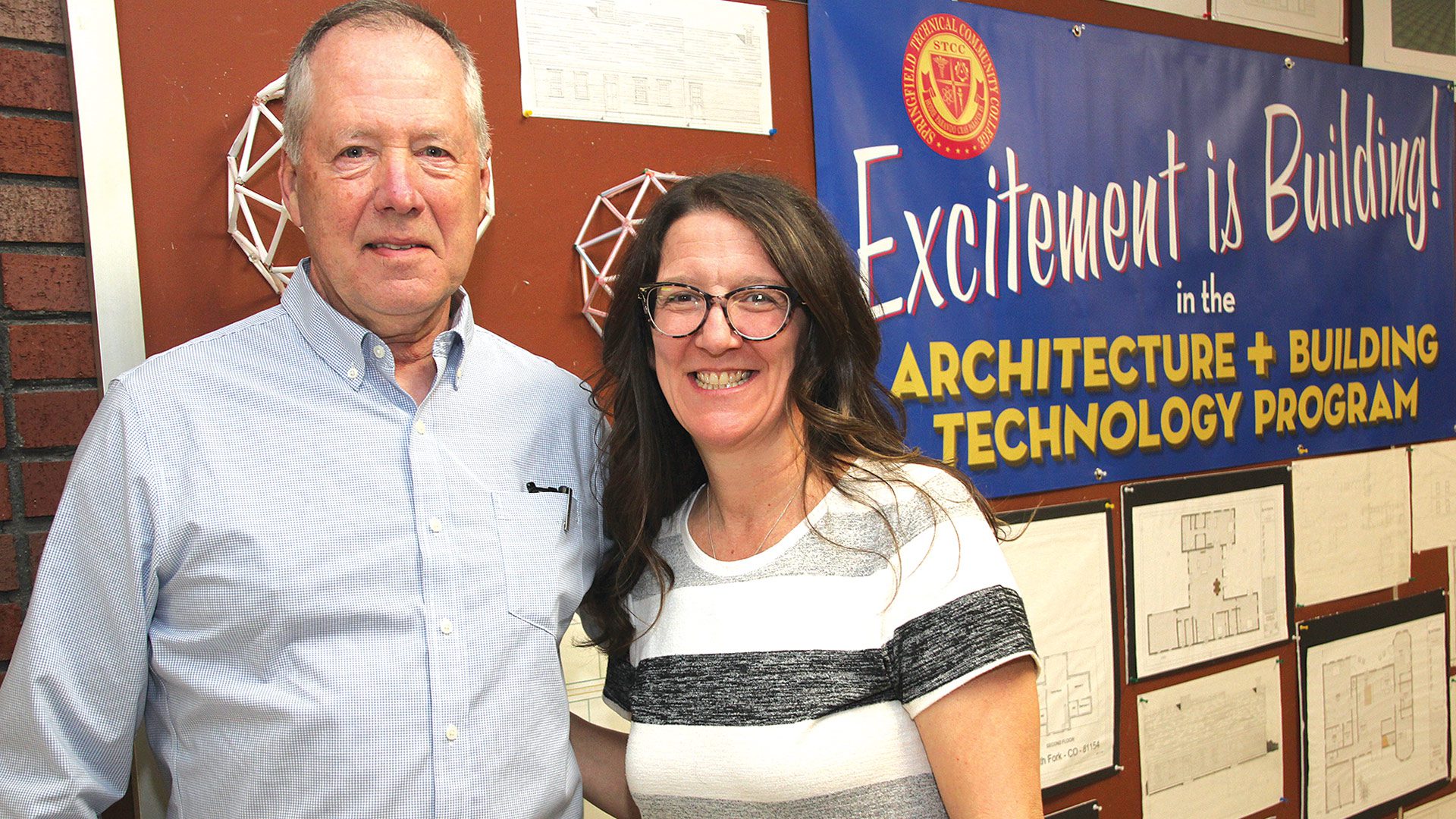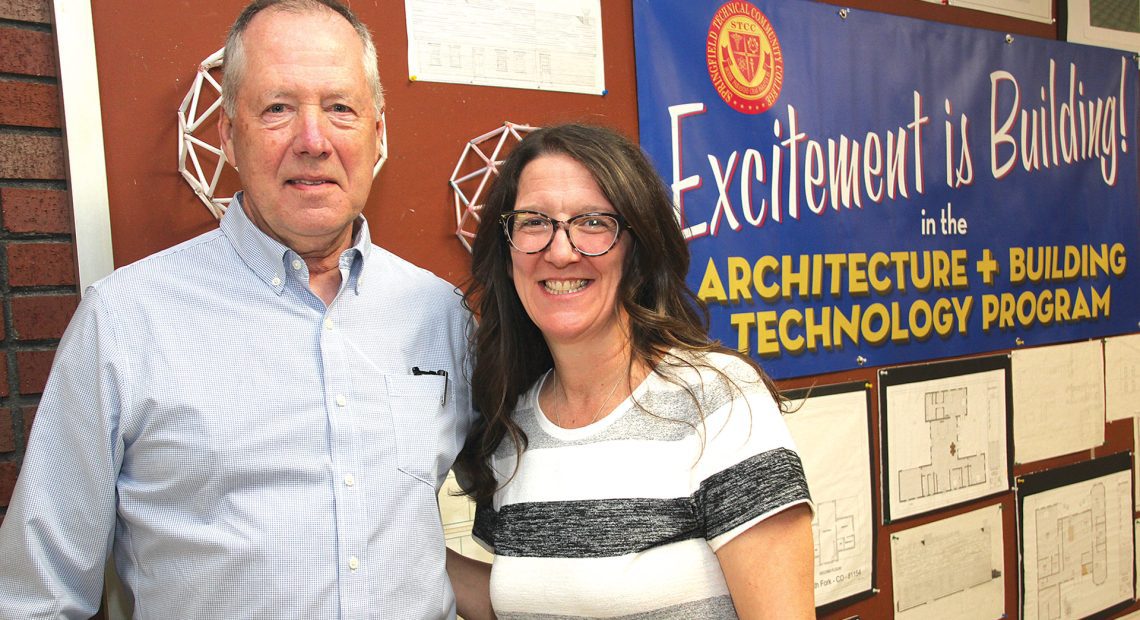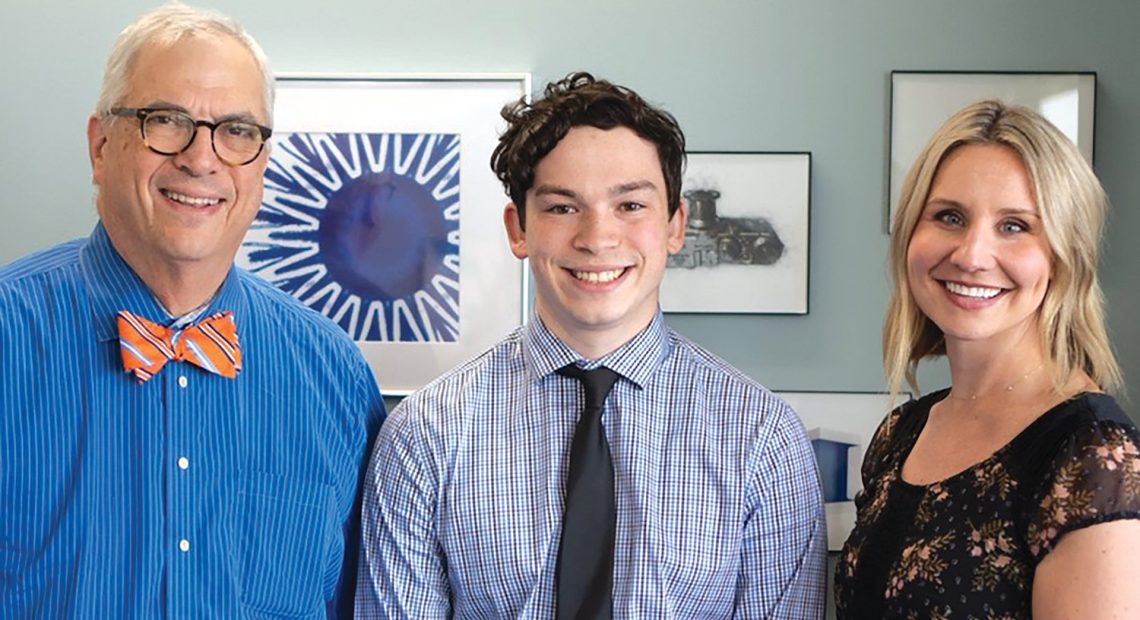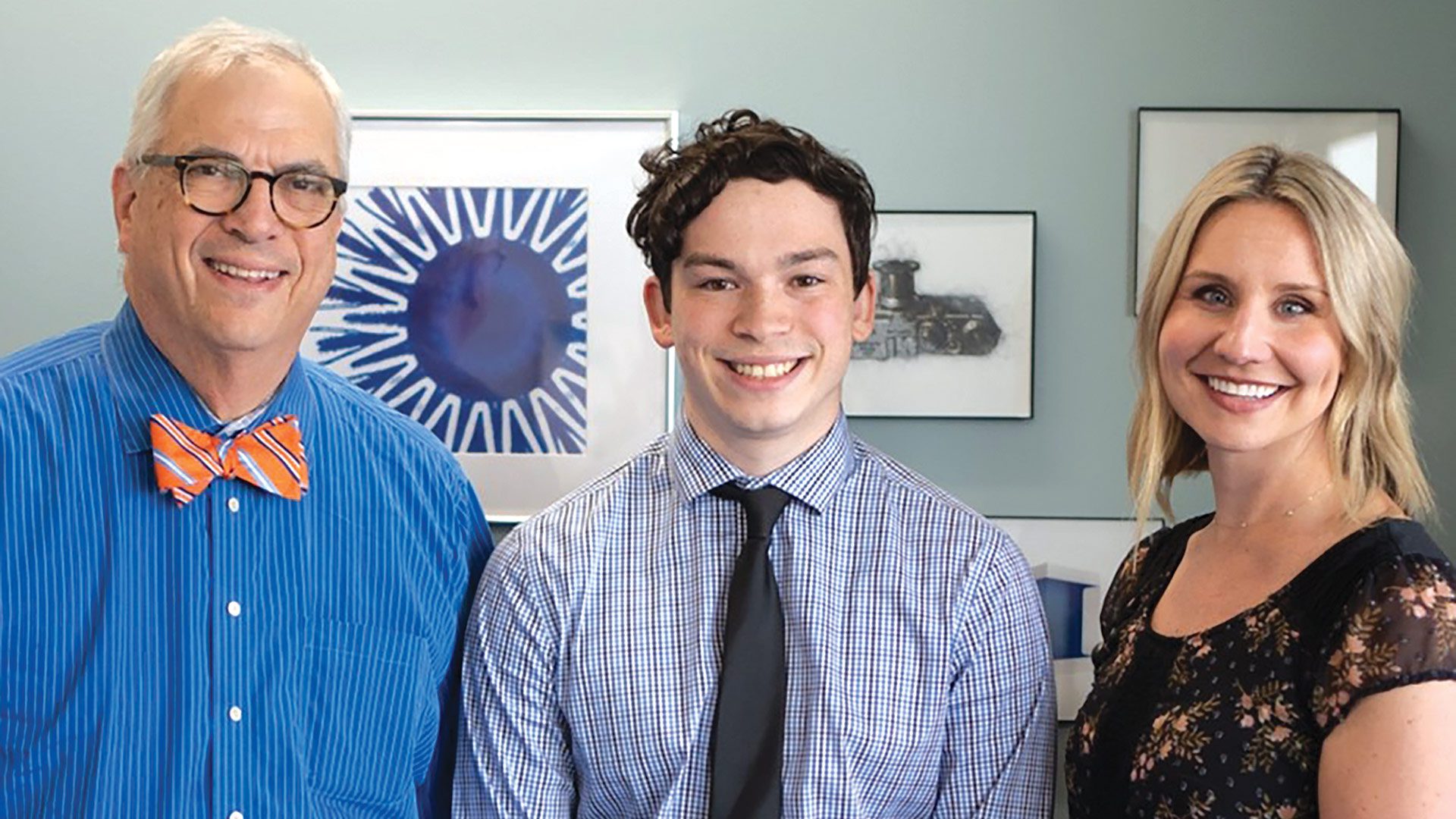Strong Foundation

Professors Warren Hall and Jennifer DeForge of the Architecture and Building Technology program at STCC.
Warren Hall calls April 23, 2013 — the day the Massachusetts Board of Higher Education approved architecture and building technology as a two-year associate-degree program at Springfield Technical Community College — “a great day.”
“We were approved after a seven-year process,” said Hall, a professor in the program at STCC. “Creating programs is something I love to do. I like to figure it out and find out how to get people through the door.”
As of commencement this past May, the degree program boasts more than 200 graduates who hail from the Greater Springfield region and beyond. Students enroll in the program — the only one of its kind in Western Mass. — to acquire skills that prepare them for careers in architectural design and construction-related fields. Some students can start their careers after graduating from STCC, while many transfer to four-year colleges and universities.
STCC has agreements with UMass Amherst and other state colleges and universities that provide for a smooth transition into a bachelor’s degree program.
The program drew interest from Nathalia Hermida, who was living in Colombia in 2013 and considering colleges in the U.S.
“I always wanted to go for architecture,” she said. “I started looking for universities with my mom. She found out about a program at UMass Amherst, but the cost was too high for us, especially coming from Colombia. So, lucky for us, we found out that STCC had a program that would transfer into UMass’s architecture program. We looked into that. As a community college, it seemed like a really good program and was more affordable for us, so we decided to go with it.”
She earned her degree from STCC in 2016 before transferring to UMass and earning a bachelor’s degree in sustainable community development. Today, Hermida works at Uncommon Architectural Places, founded by Alfonso Nardi, an adjunct professor in the STCC architecture program.
“I’m lucky enough to share my design and building experience with them and watch them move onto some incredible positions in the building industry and continuing their education in architecture and building technology.”
In addition to professors Nardi and Hall, the program’s faculty includes Jennifer DeForge, now the program coordinator, who graduated from STCC in 2009 with an associate degree in civil engineering technology and is working on her second master’s degree.
“Working in the architecture and building technology program has been one of the best career decisions I could have made,” DeForge said. “Every day, I work with our students and fellow colleagues, who are some of the most driven individuals I have met, and I’m lucky enough to share my design and building experience with them and watch them move onto some incredible positions in the building industry and continuing their education in architecture and building technology.”
Hermida plans to pursue her architecture license and a master’s degree. STCC provided a solid foundation for her continuing education, she said. “I was really impressed about how complete the program was. They packed a lot into two years.”
The program has drawn other international students. Obed Otabil and Asra Afzaal both graduated in 2018. Otabil hails from Ghana, while Afzaal grew up in Pakistan.
Otabil attended UMass to earn his bachelor’s and master’s degrees. He is taking time off to raise a child, but hopes to work at an architectural firm and own his own firm one day.
“All the training I received from Springfield Tech was very helpful,” Otabil said. “Having the basic knowledge about architecture actually helped me sail through the undergrad program pretty smoothly.”
Afzaal left Pakistan to pursue educational opportunities in the U.S. She entered the U.S. educational system as an 11th-grader in high school and then found the STCC architecture and building technology program. Like Otabil, Afzaal went to UMass and received her bachelor’s degree in building and construction technology. In March 2023, she moved to Texas to work for an architecture, planning, and design firm as the space planner and project planner.
“STCC was the base, the foundation. And then on top of it, I laid the layers,” she said. “My basics were so strong that I was able to build on it and learn more and more. And I am so grateful that I was in the architecture program at STCC.”
Michael Caine, a 2016 graduate of the architecture and building technology program, later earned his master of architecture professional degree from the University of Pennsylvania School of Design. He also earned a bachelor’s degree in architecture from UMass Amherst.
Today, he lives in Philadelphia and works as a lead conceptual designer for an architectural firm that focuses on multi-family residential projects. He describes his conceptual work as “the dream job of architecture.”
Caine enrolled at STCC in part because the college is the most affordable in Springfield. He didn’t know what he would major in when he started, but later discovered the architecture and building technology program was a good fit.
“It is really unique to have an architecture department at a community college,” he said. “Having the exposure to architecture at such an early stage in an academic career of higher ed is really beneficial. It allows that barrier of entry to really be demolished.
“It was really beneficial for me to get the exposure and the breadth of knowledge to be career-ready at such an early stage. For me, that was really beneficial. After my first semester at STCC, I was able to win an internship, and from there, just learning both the technical side at school, but also the practical side during work while going to school, was the one-two punch.”
Caine said he is proud to call himself a graduate of STCC’s 10-year-old architecture and building technology program, and he recommends it to anyone interested in a career in building construction or design.
“It’s a super-unique program,” he said. “The way that professors Warren Hall, Jennifer DeForge, and Al Nardi have shaped it over the years is really something special. When I transferred to UMass, I had all these skills they weren’t even teaching over there until later down the road.”










